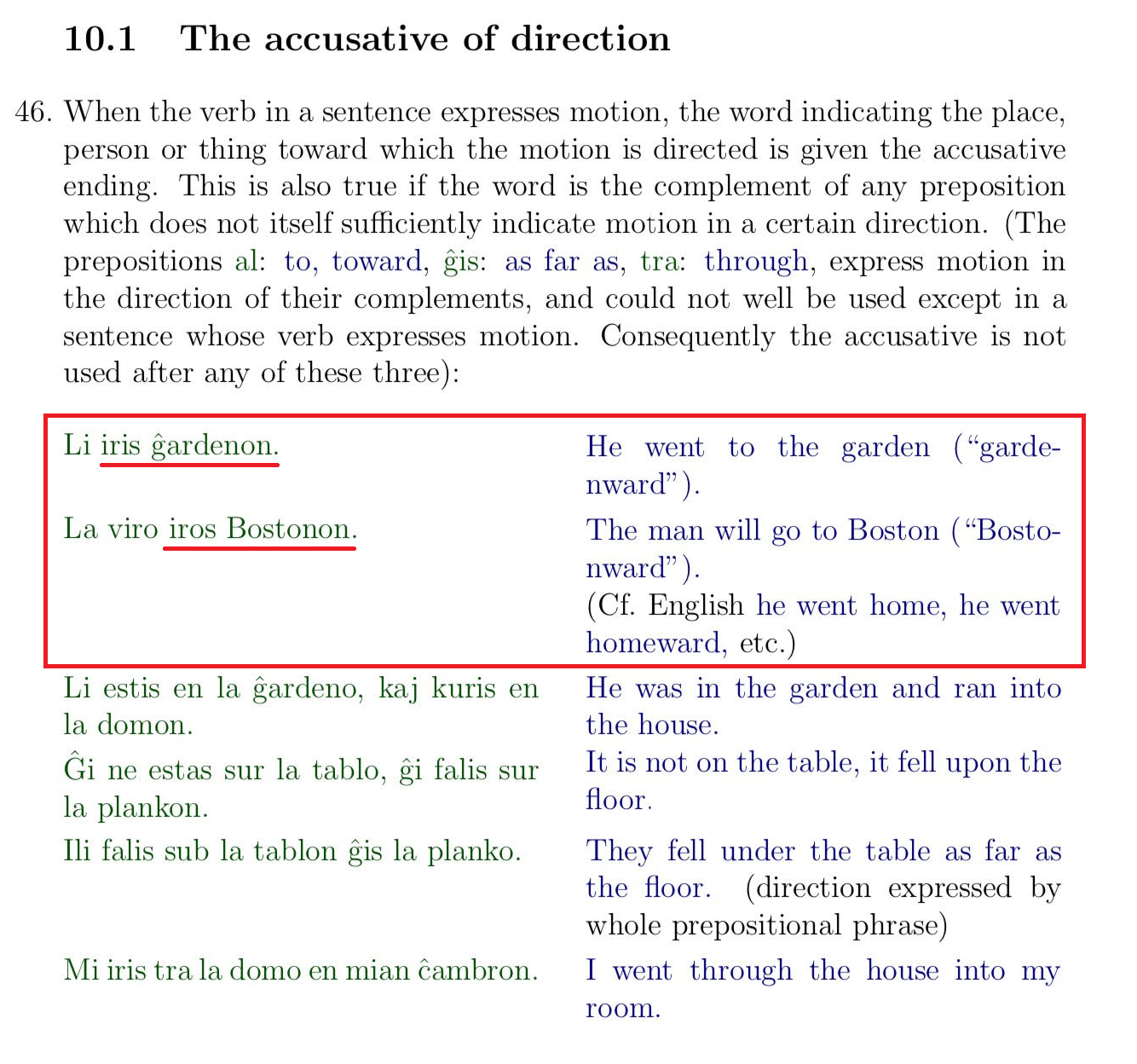The image below is a section from A Complete Grammar of Esperanto (Ivy Kellerman, 1910), outlining the use of accusatives with verbs expressing motion. I've marked the relevant parts in red.
 To my knowledge, this is the first time in the book where the verb iri appears without a preposition (the author previously used it in conjunction with al, ĝis and de), and seems to be provided without explanation as to why the preposition is allowed to be omitted. I'm puzzled: When is it appropriate to omit the preposition? And what verbs can this be done with? (i.e., can flugas al la nesto be shortened to flugas la neston?)
To my knowledge, this is the first time in the book where the verb iri appears without a preposition (the author previously used it in conjunction with al, ĝis and de), and seems to be provided without explanation as to why the preposition is allowed to be omitted. I'm puzzled: When is it appropriate to omit the preposition? And what verbs can this be done with? (i.e., can flugas al la nesto be shortened to flugas la neston?)
For the practice sentences included in the chapter, the online third party answers do not seem to omit the preposition. For example,
We went to the city of Boston yesterday and into a beautiful house.
might be translated to
Ni iris la urbon Bostono hieraŭ kaj en la belan domon.
based on the example given in the book, but the answers use iris al la urbo Bostono instead.
I was searching for the correct way to add the accusative ending to the apposition urbo Bostono, and found that PMEG had a similar example to the one given in the book, which can be found here. The example PMEG gave was:
Ni vizitis la urbon Parizo.
This is my fourth day learning Esperanto, so I can't understand PMEG yet, but the chapter seemed to talk only about apposition (Identiga priskribo). I would appreciate it if someone could find the answer to the highlighted question above from a credible source such as PMEG.